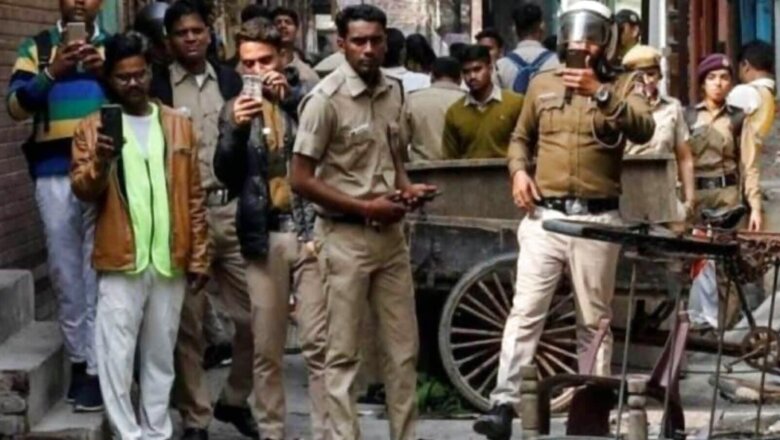
views
The city police on Monday opposed before the Delhi High Court the bail plea of RJD youth wing leader and Jamia Millia Islamia student Meeran Haider in a UAPA case related to an alleged conspiracy behind the 2020 riots here.
The Delhi Police told a bench of justices Siddharth Mridul and Rajnish Bhatnagar that Haider was the coordinator of the Jamia Coordination Committee (JCC) that was at the “foundation of every chakka jam”.
It also told the bench that “formation of protest sites” by the Haider and others are enough for the offence of conspiracy Haider and several others, including activists Umar Khalid and Sharjeel Imam, have been booked under the anti-terror law — Unlawful Activities (Prevention) Act (UAPA) — and provisions of the Indian Penal Code (IPC) for allegedly being the “masterminds” of the February 2020 riots in northeast Delhi that left 53 people dead and more than 700 injured.
The violence had erupted during protests against the Citizenship (Amendment) Act (CAA) and the National Register of Citizens (NRC).
“He was one of the material members of JCC. Jamia JCC is connected to every spot. JCC was at the foundation of every ‘chakka jam’ in the city. The entire conspiracy is happening in JCC. He was the central coordinator of JCC,” argued special public prosecutor Amit Prasad on behalf of the police.
“Even formation of 25 protest sites were preparatory act and enough for conspiracy,” he said.
Lawyer Shri Singh, appearing for the accused, urged the high court to grant bail to Haider, saying he has spent three years in custody and that being member of a group by itself was not an offence, and there is no “actual attribution” of any role to Haider.
“I have not called for any actual violence. Presence at a protest site does not correspond to being responsible for violence,” Singh said.
Last week, Haider’s counsel claimed that the speeches given by Haider were “political”, where he expressed his “discontent with the government” and “chose to express his anguish” but did not incite violence or rioting.
He had asserted that the accused’s specific role has to be ascertained to sustain a case under the UAPA, and in the present case, his “pattern of involvement does not match” the prosecution’s version.
Read all the Latest India News here
















Comments
0 comment